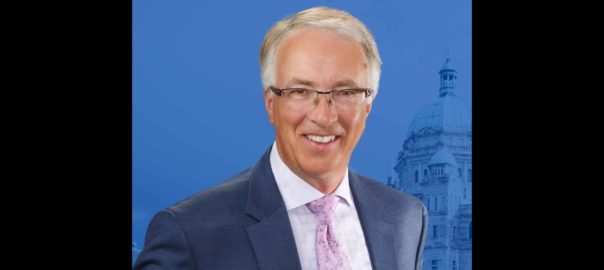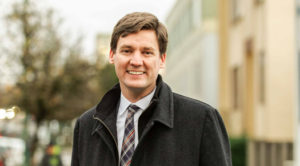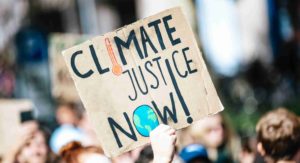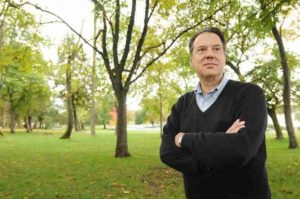
Women comprise 51% of British Columbia’s population, and electorate.
As such, whether provincial, federal or municipal, political parties offering candidates seek to ensure fair representation of the candidates running on their slates.
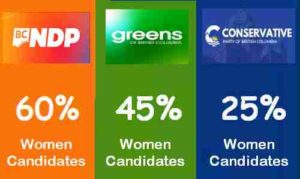
In the 2024 British Columbia provincial election, approxiately 60 per cent of B.C. NDP candidates, 45 per cent of B.C. Green candidates and 25 per cent of B.C. Conservative candidates are women, heading into the October 19th election.
According to a a Sunday article published in the Victoria Times Colonist the online journal Equal Voice, which advocates for gender parity in provincial and federal elections and tallies up the nominees on its election tracker, notes that 42.5 per cent of MLAs elected in the last provincial election in 2020 were women.
Kimberly Speers, a University of Victoria assistant teaching professor in the School of Public Administration, said political parties in British Columbia need to ensure their candidates for office reflect the population the party is seeking to represent.
“Otherwise, they may face voters who do not see their needs and themselves reflected in the policies and faces of political party and will vote for the party who has made the effort,” she said.
According to Statistics Canada, women make up just over half of the 5.6 million people living in British Columbia, 2.85 million women versus 2.75 million men.
Ensuring a legislature or council effectively represents its population is critical for a well-functioning government and society, said Speers.
While women run for all political parties and have varying perspectives on how to govern, “the common trait is that they represent a group that has been underrepresented in positions of political power,” said Speers.
Women candidates for office are dramatically underrepresented on the slate of 93 candidates John Rustad’s Conservative Party of B.C. are offering to the people of British Columbia, which in 2024 must be seen as regressive, and a step backwards.
The lack of women candidate representation in the B.C. Conservative Party is a source of concern that must considered when casting your ballot, at either an advance polling station — which open this upcoming Thursday, October 10th — or on Election Day, just 13 short days from today, on Saturday, October 19th.
Do British Columbians Really Want to Elect an Anti-Vaxx Premier?

In a series of interviews conducted with the press, B.C. Conservative Party leader John Rustad has expressed deep concern about the COVID-19 vaccine — both Pfizer and Moderna — saying he regrets having had three COVID-19 shots, attributing a heart condition with which he was afflicted months later to the COVID shot.
In July of this year, John Rustad met with an anti-vax group that is suing Dr. Bonnie Henry.
He said he regrets getting “the so-called vaccine” and accuses Dr. Henry of using it for “control on the population.” pic.twitter.com/m2h3IHAyK0
— BC NDP (@bcndp) September 23, 2024
Mr. Rustad is also on record as stating that should he become Premier of B.C., a first order of business for his B.C. Conservative administration would be to fire Dr. Bonnie Henry — who, it should be noted enjoys a 62 per cent approval rating — as British Columbia’s well-regarded Provincial Health Officer. Firing Dr. Bonnie Henry, who got us through the worst of the COVID-19 pandemic, is that a course of action with which most British Columbians would find themselves in agreement?
According to a September 23rd Vaughn Palmer column in the Vancouver Sun …
- He (Rustad) now regards the COVID mRNA shots as “a ‘so-called’ vaccine.”;
- He (Rustad) wishes he had not been vaccinated.;
- He (Rustad) thinks the vaccine mandate was about “control of the population.”
Rustad has been accused of harbouring crackpots. On the video, included in today’s VanRamblings column, “he sounds like one himself,” writes Palmer.
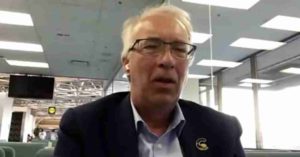
As the icing on the cake of the craziness and chaos that would follow the election of John Rustad as British Columbia’s 48th Premier, he states that his administration would be open to joining other jurisdictions in legal proceedings inspired by the Nuremberg Trials, aimed at prosecuting those deemed responsible for COVID-19 public health measures and vaccines.
The Nuremberg trials were held in Germany after WWII to hold to account the Nazi leaders responsible for the murder of 8 million Jews, and LGBTQ and disability communities. John Rustad equates Dr. Bonnie Henry with WWII Nazi war criminals.
Nuremberg 2.0 advocates typically call for those who created, justified or enforced public health measures — including politicians, doctors, academics, journalists and police — to be jailed and even executed for “crimes against humanity.”
The BCPS Employees for Freedom Society interview with B.C. Conservative Party leader John Rustad (you have to skip the first video that loads) who states that if he is elected Premier, he would replace Dr. Henry, and further would compensate with government funds health care professionals who he believes were discriminated against and mistreated under the “regime” of Dr. Bonnie Henry.
“Nuremberg 2.0,” an idea to hold Nuremberg-style trials to prosecute and execute political leaders and public health officials for bringing in COVID-19 restrictions, is big in anti-vaxxer and QAnon circles.
2. https://t.co/s0WqHENuZy #ottnews https://t.co/maANTC1Srm
— Luke LeBrun (@_llebrun) February 2, 2022
Timothy Caulfield, a Canada research chair in health law and policy at the University of Alberta who specializes in online misinformation and conspiracies, says “it’s horrifying” to hear a political leader “legitimizing and normalizing” any talk of a “Nuremberg 2.0.”
“This is dark, nasty stuff,” Caulfield told Press Progress. “They’re not talking about some kind of careful judicial process, it really is code for execution and retribution. That’s what’s at the heart of Nuremberg 2.0.”
Peter Smith, an investigative journalist and researcher with the Canadian Anti-Hate Network, says people who talk about Nuremberg 2.0 are typically fuelled by grievances about pandemic public health measures.
“It is a phrase that emerged during the pandemic and was supposed to be the title for these coming trials for ‘crimes against humanity’ that would be brought against doctors, politicians, police and more for enforcing and carrying out COVID-19 health restrictions,” Smith told the folks at Press Progress. “It is essentially accusing a large number of public and private individuals who acted during a health crisis of being on par with one of the worst campaigns of subjugation, humiliation and destruction in modern history,” Smith added, referencing Nazi atrocities during the Second World War.
A question: do you want taxpayer funds to go to compensation for the small rump group of British Columbia health workers who refused to get the COVID-19 vaccine to keep their patients safe, and further to fund a far-right-inspired government campaign to hold health officials, including Dr. Bonnie Henry and B.C.’s Minister of Health, Adrian Dix, “to account”? That’s what you’ll get if you elect John Rustad.
